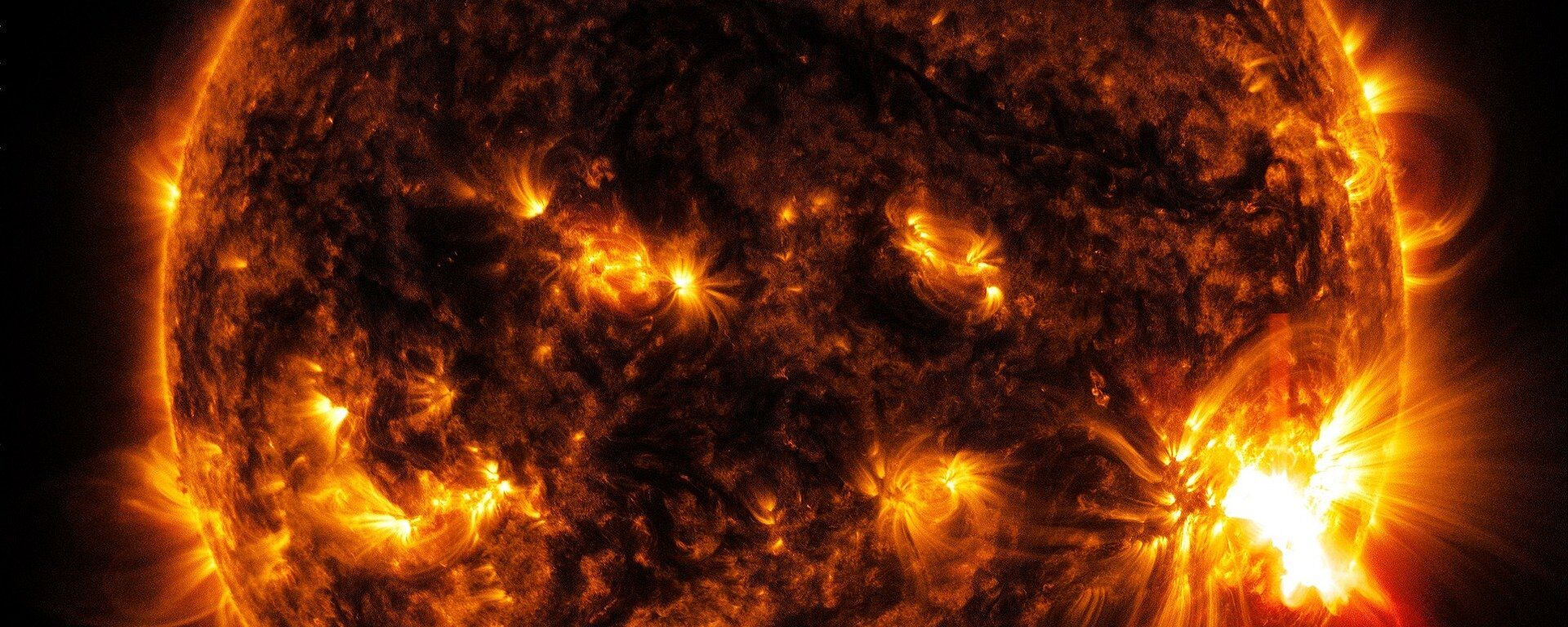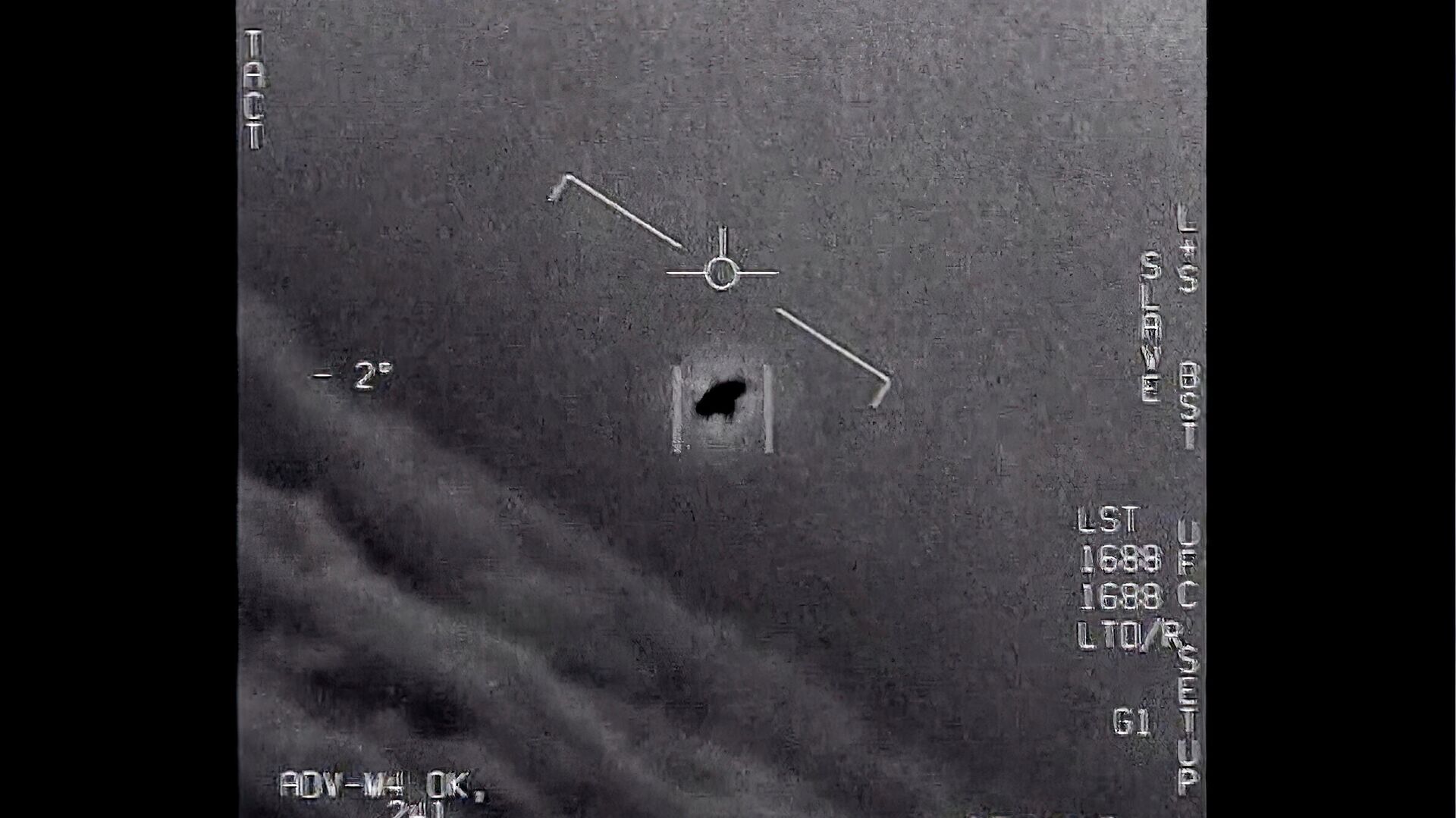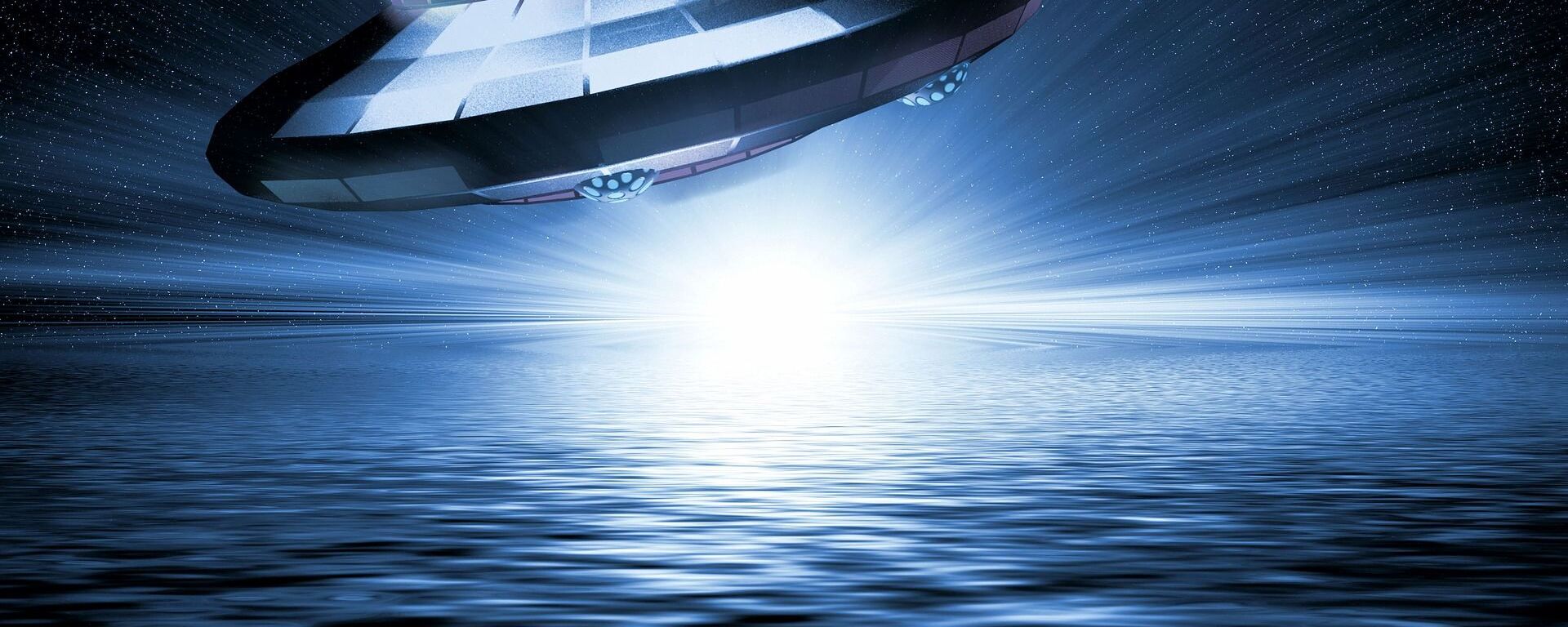https://sputnikglobe.com/20220611/russian-space-agency-chief-doesnt-rule-out-aliens-arent-already-studying-humanity-like-microbes-1096220247.html
Aliens Could Already Be Studying Humanity Like Microbes, Russian Space Agency Suggests
Aliens Could Already Be Studying Humanity Like Microbes, Russian Space Agency Suggests
Sputnik International
Humanity has pondered on alien life in the universe going back to the times of antiquity, with interest intensifying in the 20th century as we gained the... 11.06.2022, Sputnik International
2022-06-11T12:13+0000
2022-06-11T12:13+0000
2022-06-11T12:29+0000
aliens
dmitry rogozin
russian federal space agency roscosmos
alien life
https://cdn1.img.sputnikglobe.com/img/07e5/0c/10/1091582792_0:141:2374:1476_1920x0_80_0_0_c299f75f35adabb44c5031b30331dcc5.jpg
Life on other planets definitely exists and likely includes life forms which are more developed and advanced than those on Earth, Russian Space Agency chief Dmitry Rogozin has said.“It’s a question that has vexed humanity for thousands of years: is there any other life besides that which exists on our planet? Does such organic life exist? It can be in the simplest form. For example, we’re trying to understand whether there are signs of methane in the Martian atmosphere (methane is a sign of organic life). Or, for example whether there was life on Venus, which was destroyed as a result of thermal changes. That’s as far as inside the Solar System is concerned”, Rogozin said, speaking to Russian television on Saturday.Rogozin noted that investigations of unidentified flying objects and other inexplicable phenomena have been carried out by the Russian Academy of Sciences, and that to date, “99.9” percent of the time, these are not connected to any alien phenomena.“But we accept that such phenomena could exist, and I am personally familiar with the reports of our honoured Soviet test pilots, who in the 1970s, in the course of testing new aircraft technologies encountered things that forced them sketch out what they saw after returning from their flights. Normally this took place specifically during the first test flights. I spoke to people from NASA. There are also supporters there of the idea that we may be the objects of external observation. I would like to believe that”, Rogozin said.In the interview, Rogozin also commented on matters closer to home, reporting that the German eROSITA telescope satellite on board the Spektr-RG black hole-hunting, universe-mapping space observatory, which was shut down this spring, could be turned back on within two to four months. He also revealed that the US paid for astronaut Mark Vande Hei’s flight to the International Space Station in rubles using Axiom Space as an intermediary. The astronaut arrived aboard the ISS on a Soyuz MS-18 spacecraft together with Russian cosmonauts Oleg Novitsky and Pyotr Dubrov on 9 April 2021, and arrived back on Earth on 31 March 2022.The idea of alien life beyond our planet has fascinated humanity for thousands of years, with speculation about it going back to at least the time of the Ancient Greek philosopher Democritus.In the 20th century, as technology advanced and humanity made its first baby steps into space, interest intensified, and scientists, writers, and even politicians began to speculate about whether alien life arriving on Earth would be friendly or hostile.In a speech before the United Nations in 1987, Ronald Reagan, Hollywood actor-turned-president, famously suggested that the world would require some “alien threat from outside this world” to make nations recognise their “common bond”. Soviet palaeontologist and science fiction writer Ivan Yefremov had a different perspective, and hypothesised in his short story "Heart of a Serpent" that for a civilisation to become advanced enough to master space travel, it would first have to resolve its differences at home. This, Yefremov suggested, would ensure that any hypothetical first encounter would more than likely be peaceful.
https://sputnikglobe.com/20220517/declassified-videos-of-flying-objects-unveiled-at-rare-us-congress-ufo-hearing-1095583577.html
https://sputnikglobe.com/20210920/alien-tech-could-cause-solar-explosion-that-might-wipe-out-life-on-earth-blogger-claims-1089245371.html
Sputnik International
feedback@sputniknews.com
+74956456601
MIA „Rossiya Segodnya“
2022
News
en_EN
Sputnik International
feedback@sputniknews.com
+74956456601
MIA „Rossiya Segodnya“
Sputnik International
feedback@sputniknews.com
+74956456601
MIA „Rossiya Segodnya“
aliens, dmitry rogozin, russian federal space agency roscosmos, alien life
aliens, dmitry rogozin, russian federal space agency roscosmos, alien life
Aliens Could Already Be Studying Humanity Like Microbes, Russian Space Agency Suggests
12:13 GMT 11.06.2022 (Updated: 12:29 GMT 11.06.2022) Humanity has pondered on alien life in the universe going back to the times of antiquity, with interest intensifying in the 20th century as we gained the ability to engage in limited exploration and examination of planetary bodies near Earth, and to better watch and listen for life up to billions of light-years away.
Life on other planets definitely exists and likely includes life forms which are more developed and advanced than those on Earth, Russian Space Agency chief Dmitry Rogozin has said.
“It’s a question that has vexed humanity for thousands of years: is there any other life besides that which exists on our planet? Does such organic life exist? It can be in the simplest form. For example, we’re trying to understand whether there are signs of methane in the Martian atmosphere (methane is a sign of organic life). Or, for example whether there was life on Venus, which was destroyed as a result of thermal changes. That’s as far as inside the Solar System is concerned”, Rogozin
said, speaking to Russian television on Saturday.
“But we understand that space is infinite, and that there is an infinite number of constellations, galaxies and worlds. We know, for example the Big Bang Theory, but maybe this Big Bang took place only in the outer space visible to us, and beyond that, what we don’t see, perhaps there are many more such worlds. This suggests that there are an innumerable number of factors which may be favourable for the emergence of life, including intelligent life. I consider myself a supporter of this perspective”, he added.
Rogozin noted that investigations of unidentified flying objects and other inexplicable phenomena have been carried out by the Russian Academy of Sciences, and that to date, “99.9” percent of the time, these are not connected to any alien phenomena.
“But we accept that such phenomena could exist, and I am personally familiar with the reports of our honoured Soviet test pilots, who in the 1970s, in the course of testing new aircraft technologies encountered things that forced them sketch out what they saw after returning from their flights. Normally this took place specifically during the first test flights. I spoke to people from NASA. There are also supporters there of the idea that we may be the objects of external observation. I would like to believe that”, Rogozin said.
The Russian space chief did not rule out that Earth is already under extraterrestrial observation, and that the current levels of human technology and understanding of science may simply not be advanced enough at the present stage to realise this yet. “We aren’t the only ones who can study microbes, but can be studied like microbes”, Rogozin quipped.
In the interview, Rogozin also commented on matters closer to home, reporting that the German eROSITA telescope satellite on board the Spektr-RG black hole-hunting, universe-mapping space observatory, which was shut down this spring, could be turned back on within two to four months. He also revealed that the US paid for astronaut Mark Vande Hei’s flight to the International Space Station in rubles using Axiom Space as an intermediary. The astronaut arrived aboard the ISS on a Soyuz MS-18 spacecraft together with Russian cosmonauts Oleg Novitsky and Pyotr Dubrov on 9 April 2021, and arrived back on Earth on 31 March 2022.
The idea of alien life beyond our planet has fascinated humanity for thousands of years, with speculation about it going back to at least the time of the Ancient Greek philosopher
Democritus.
In the 20th century, as technology advanced and humanity made its first baby steps into space, interest intensified, and scientists, writers, and even politicians began to speculate about whether alien life arriving on Earth would be friendly or hostile.
In a speech before the United Nations in 1987, Ronald Reagan, Hollywood actor-turned-president, famously
suggested that the world would require some “alien threat from outside this world” to make nations recognise their “common bond”. Soviet palaeontologist and science fiction writer Ivan Yefremov had a different perspective, and hypothesised in his short story
"Heart of a Serpent" that for a civilisation to become advanced enough to master space travel, it would first have to resolve its differences at home. This, Yefremov suggested, would ensure that any hypothetical first encounter would more than likely be peaceful.

20 September 2021, 17:05 GMT



